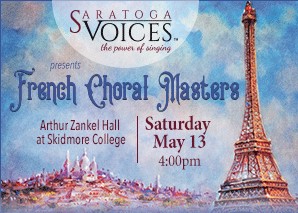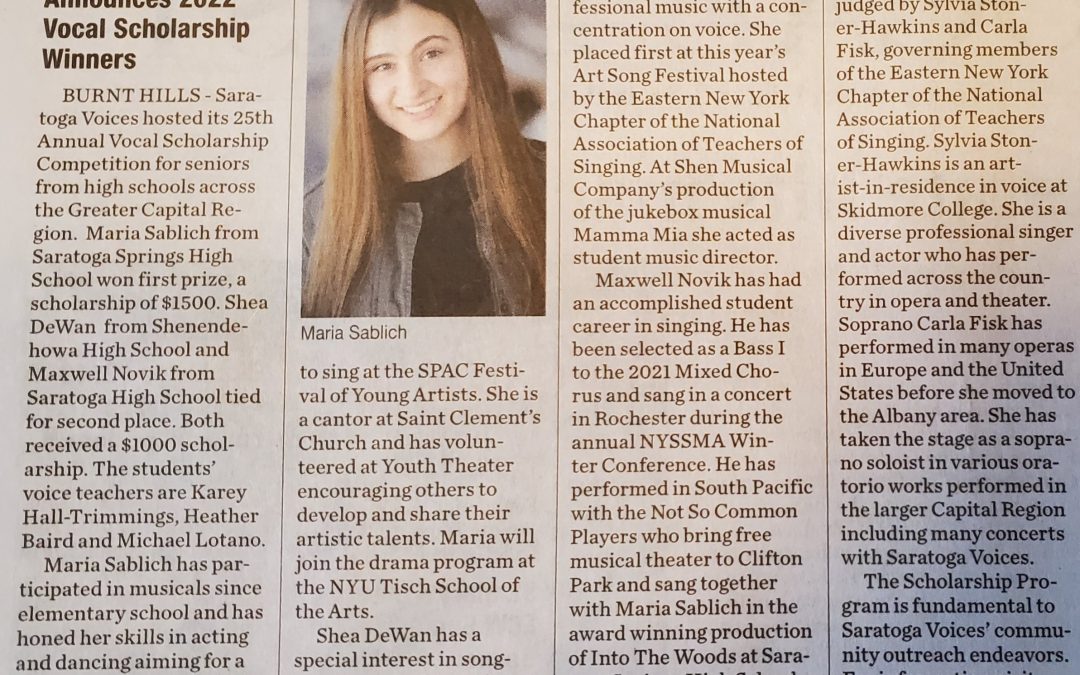WELCOME TO
SARATOGA VOICES
The power of singing
News & Events

Saratoga Voices Announces New Artistic Director Noah Palmer
Saratoga Voices’ Board of Directors is pleased to announce that Noah Palmer will be the chorus’s new Artistic Director. Starting on July 1, 2023, he will be the group’s sixth director in the organization’s 53-year history, including the decades when the chorus was...

MUSIC REVIEW: Saratoga Voices soar in final concert of season
Daily Gazette - MUSIC REVIEW: Saratoga Voices soar in final concert of season By Geraldine Freeman | May 14, 2023 Saratoga Voices gave their last concert of the season Saturday afternoon at Arthur Zankel Hall at Skidmore College with a program of very serious music...

Saratoga Voices Announce Vocal Scholarship Winners – 2022
Saratoga Voices hosted its 25th Annual Vocal Scholarship Competition for seniors from high schools across the Greater Capital Region. Maria Sablich from Saratoga Springs High School won first prize, a scholarship of $1500. Shea DeWan from Shenendehowa High School and...
For Over 50 Years
Saratoga Voices embraces the choral arts within a vibrant, collaborative, and skill-nurturing environment, striving for excellence in choral performances, including diverse artists and audiences to share the joy and power of singing.

EXPLORE SARATOGA VOICES
 Upcoming Events
Upcoming Events
 Our Latest News
Our Latest News
 Scholarship Program
Scholarship Program
 Advertising Partners
Advertising Partners
 Voice Your Support
Voice Your Support
 Join Our Chorus
Join Our Chorus

TESTIMONIALS
PROUD MEMBERS
JOIN OUR NEWSLETTER
Stay informed! Subscribe to our mailing list for performance announcements, latest news & more.





